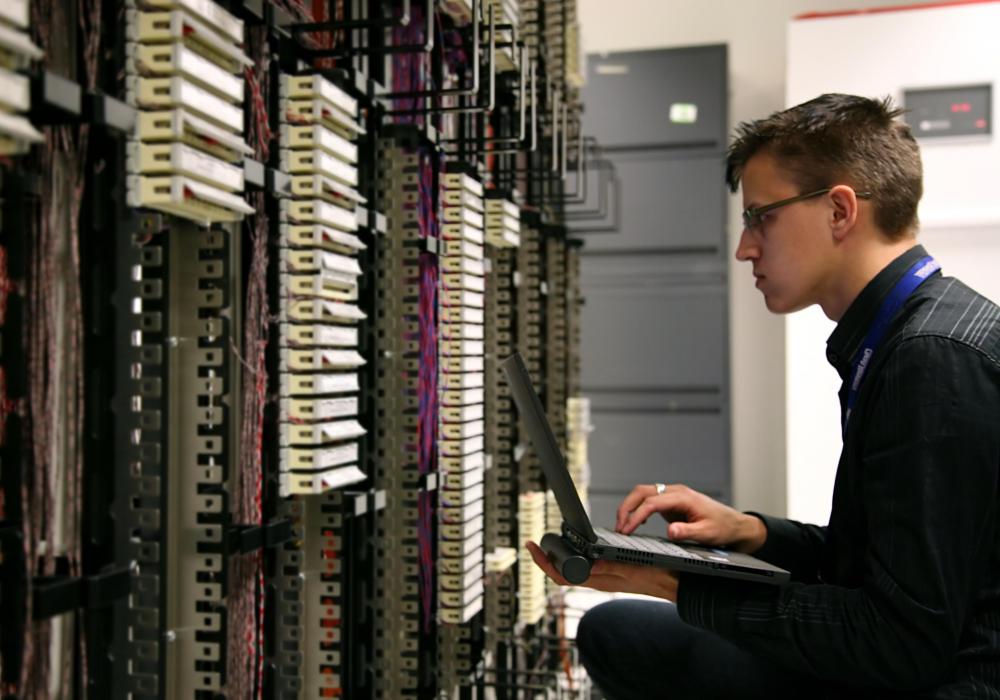At PracticalAdultInsights, we're committed to delivering accurate, trustworthy information. Our expert-authored content is rigorously fact-checked and sourced from credible authorities. Discover how we uphold the highest standards in providing you with reliable knowledge.
What does a Network Security Analyst do?
A network security analyst is employed by a company or organization to manage the security of its computer networks and information systems. This entails auditing the network for vulnerabilities, developing solutions for security issues, and investigating security breaches. Network security analysts are also often responsible for the training and education of a company's staff and clients in best computer security practices. Tools used by a network security analyst include anti-virus software, firewalls, server monitoring applications and equipment, and data encryption.
The computer network of a business is susceptible to malicious intrusion by unauthorized individuals, and it is the job of a network security analyst to prevent these attacks. Avoiding issues by taking appropriate preventive measures using firewalls and anti-virus software is only one part of a computer security analyst's role. Server logs and network traffic are monitored for unusual activity by a network security analyst, often using automation software and applications designed to detect intrusion.

If a security breach occurs on a company network, either through illegitimate server access or the detection of malware, a network security analyst is responsible for investigating and resolving the incident. This is often a process of forensic analysis that involves isolating viruses and malware, and working back through servers logs to determine points of access. Once the issue is understood, an analyst will work to correct the security breach and take necessary steps to prevent it from occurring in the future.

The encryption of information and company data may be a responsibility of a network security analyst. Encryption can help to prevent the loss of sensitive data in the event of an issue and is necessary for the secure storage of certain types of records, such as financial data. Analysts may also setup encryption for company emails and website logins.

Security analysts are often charged with educating employees on preventing security issues, such as best password practices and securing computer desktop access. Analysts may hold training seminars or courses and consult management on network security topics. Network security analysts are also often in charge of establishing company guidelines and polices on information security. If a company has clients that use the business's network or websites, an analyst may also advise the clients on security practices and data protection.

The world of information and network security is constantly evolving as new software and operating system vulnerabilities are discovered, and a network security analyst should stay educated and informed to best protect a company's servers and systems. This is accomplished by attending industry seminars and conferences, reading reports and journals, and keeping up with continuing education. Certifications in network security are offered by professional organizations, and completion of the coursework is sometimes required by a company for a network security analyst to gain additional knowledge while on the job.
AS FEATURED ON:
AS FEATURED ON:















Discussion Comments
From my point of view, they must watch and coordinate the work of the network monitoring tools that they use. There are a lot of tools on the market that work much better than any analyst and can foresee the troubles several steps before and even offer some troubleshooting.
For example, I know that my boss doesn't want to hire a separate network security specialist and he just bought a reliable network monitoring tool for our admin.
Post your comments